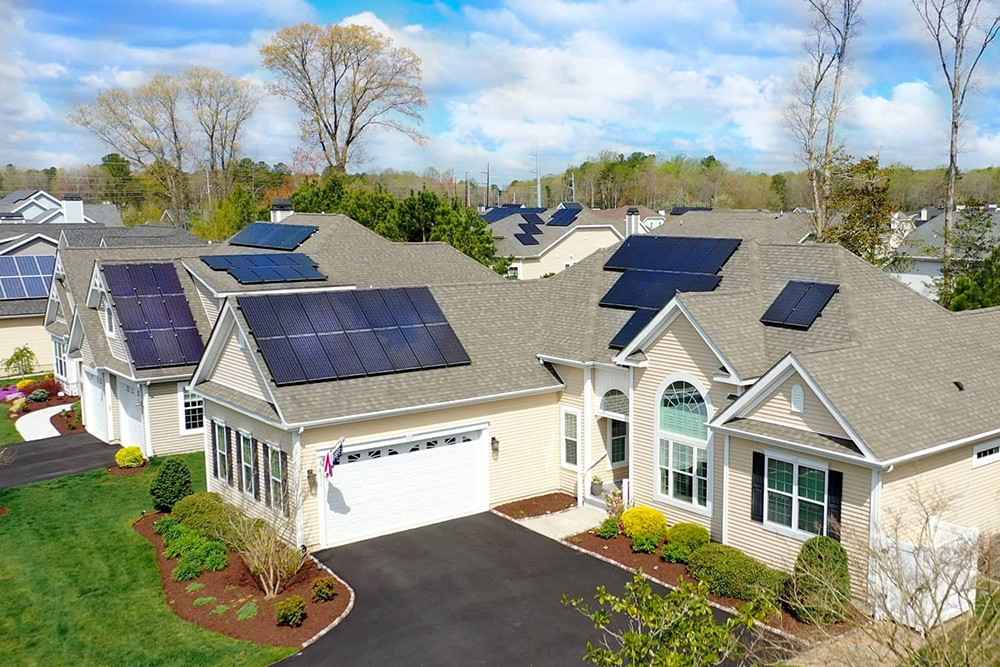A new proposal in AB 942 has been introduced in the California state legislature, which would cancel nearly two million net metering (NEM) contracts for rooftop solar systems and move existing customers to a new rate plan that would reduce the credit on their electricity bills by about 80%.
If passed, the proposal would increase a solar customer's monthly bill by about $63.
Today, there are more than 2 million solar projects installed on the rooftops of homes, schools, small businesses and other locations in California. Californians have invested tens of thousands of dollars, or signed long-term contracts lasting more than 20 years, in the hope of stable electricity prices for the next two decades.
Amid rising electricity prices, household electricity bills are kept in check by a net metering (NEM) program that allows customers to export excess daytime electricity to the local grid in exchange for credit on their electricity bills.

“AB 942 is a direct attack on California families who have invested long-term in solar, with the promise of fair 20-year NEM agreements, commitments that are clearly outlined in the state’s consumer protection documents,” said Steve Campbell, Western Regional Director for Vote Solar.
In April 2023, California transitioned from its NEM structure to a new tariff, known as NEM 3.0. This tariff structure cut the credit for new solar customers by about 80%. Since then, the rooftop solar market in California has declined dramatically as the return on investment for projects has been severely impacted.
Specifically, the move to NEM 3.0 has reduced the average export price of electricity in California from $0.30/kWh to just $0.08/kWh.
Now, AB 942 continues to subject solar customers to unfavorable rates under NEM 3.0, regardless of whether they signed contracts under previous legacy structures.
The average household uses about 870 kWh of electricity per month. Solar customers typically export 20% to 40% of their output to the grid. With the average reduction in metering and assuming 30% of output is exported, these households would pay about $63 more per month if the bill passes.
Additionally, the bill requires that from July 1, 2026, customers who have been using services under NEM 1.0 or 2.0 for 10 years or more will no longer be eligible for the old policy. Instead, they will be forced to switch to the new NEM 3.0 tariff.
“More than a million Californians signed contracts and consulted state-issued guidance documents in good faith, trusting that regulators would keep their promises,” Campbell said, adding: “Breaking those agreements would set a dangerous precedent for all consumer protection policies in California.”
The bill was introduced by state Rep. Lisa Calderon, who spent 25 years as a government affairs manager at one of the state's largest utilities, Southern California Edison.
One study found that rooftop solar could save consumers, even those without solar, about $1.5 billion by 2024. But many California utilities blame solar for rising electricity prices.
According to the California Public Utilities Commission (CPUC), the state’s three largest electric utilities—PG&E, SCE, and SDGE—have increased their customers’ electricity rates by 110 percent, 90 percent, and 82 percent, respectively, over the past 10 years. While overall electricity consumption has remained flat, investment costs in transmission and distribution have increased by as much as 300 percent.
A letter of opposition signed by nearly 100 organizations was sent to the legislature to oppose AB 942.
“To address high electricity prices, California needs to focus on the real problems in our energy system, like unchecked spending and record profits by utility companies,” the letter said.
In the letter, the organizations also expressed concern that AB 942 would raise electricity prices, limit consumer choice, hinder the state's clean energy progress, erode public trust in government, and avoid real reform of the electric system.
According to PV

Source: https://vietnamnet.vn/dien-mat-troi-mai-nha-o-my-doi-mat-bien-co-lon-trieu-ho-gia-dinh-bi-anh-huong-2393895.html

































































































Comment (0)